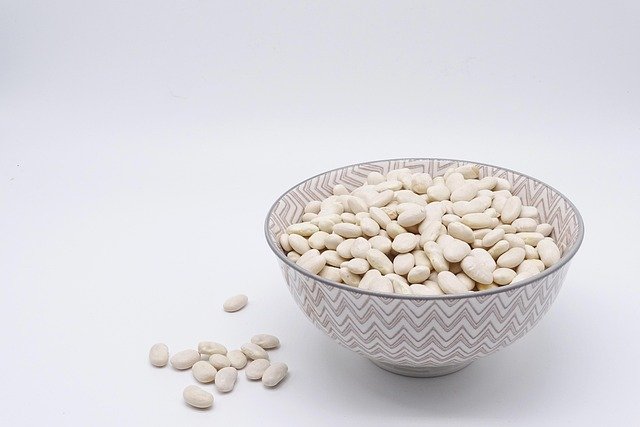Crohn's Inflammation Care: Treatment Options & Tips
Discover practical approaches to managing Crohn's disease inflammation, from medications and biologic therapies to nutrition strategies and when surgery may be needed. This guide explains how treatments reduce symptoms, support remission, and improve quality of life, with tips on working closely with your healthcare team.

What medications are commonly used to treat Crohn’s disease?
Medication is a cornerstone of Crohn’s disease management because it targets the underlying inflammation and the immune responses that drive symptoms. Several drug classes are commonly used, each with specific roles:
-
Aminosalicylates: These anti-inflammatory agents are often prescribed for mild to moderate disease to lower inflammation along the intestinal lining and help control early symptoms.
-
Corticosteroids: Fast-acting, potent anti-inflammatory drugs used to bring flare-ups under control. They are generally intended for short-term use because of the risk of significant side effects with long-term therapy.
-
Immunomodulators: Medications that dampen the immune system to reduce chronic inflammation. They are frequently used to maintain remission and can be combined with other therapies for better long-term control.
-
Biologic therapies: Targeted treatments that block specific molecules involved in inflammation (for example, certain cytokines). Biologics can be very effective for people with moderate to severe Crohn’s disease or those who haven’t responded to conventional drugs.
-
Antibiotics: Used when infections or complications such as abscesses or some types of fistulas are present. They can also be helpful for certain perianal complications.
Each medication class has benefits and potential risks; treatment choices depend on disease severity, location, previous responses to therapy, and individual health factors. Discussing options and side-effect profiles with a gastroenterologist helps identify the most appropriate regimen.
How does diet and nutrition impact Crohn’s disease management?
There is no single diet that cures Crohn’s disease, but nutrition is vital for symptom control, healing, and overall health. Many people with Crohn’s notice certain foods make symptoms worse, while others feel better when they avoid triggers. Working with your doctor or a registered dietitian can help create a tailored plan that:
- Identifies and eliminates personal trigger foods
- Ensures adequate calories, protein, vitamins, and minerals
- Addresses common deficiencies (such as iron, B12, vitamin D, and others)
- Includes anti-inflammatory foods that may support gut health
In specific situations, temporary dietary changes are useful: a low-fiber (low-residue) or low-roughage diet can ease symptoms during a flare, and a short-term liquid or elemental diet may help rest the bowel and promote healing. It’s important any restrictive diet be supervised to avoid malnutrition and to plan for reintroducing foods once symptoms improve.
When is surgery necessary for Crohn’s disease treatment?
Although many people manage Crohn’s with medicines and lifestyle measures, surgery can be necessary in some cases. Indications for surgical intervention include:
- Failure of medical therapy to control symptoms or complications
- Development of strictures (narrowed bowel segments) that obstruct passage
- Formation of fistulas or persistent abscesses
- Concerns about cancer risk after prolonged inflammation in an area
Common surgical procedures include:
- Strictureplasty: Widening narrowed areas of intestine without removing large segments
- Resection: Removing severely diseased portions of the bowel and reconnecting healthy ends
- Fistula repair: Closing abnormal connections between the intestine and other organs or the skin
Surgery often relieves symptoms and can restore function, but it is not a cure for Crohn’s; disease recurrence elsewhere in the digestive tract is possible. Surgical decisions are individualized and usually follow detailed discussions with colorectal surgeons and gastroenterologists.
How can patients work with their doctor to optimize Crohn’s disease treatment?
Effective Crohn’s management is a team effort between the patient and healthcare providers. Strategies that improve outcomes include:
-
Clear communication: Share new or changing symptoms, side effects, and treatment goals openly with your care team.
-
Adherence: Take medications as prescribed and follow dietary and lifestyle recommendations to maximize benefits.
-
Regular monitoring: Attend follow-up visits, imaging, and lab tests to track disease activity and medication safety.
-
Lifestyle habits: Manage stress, get regular exercise, prioritize sleep, and avoid tobacco, which can worsen Crohn’s.
-
Emotional support: Seek support groups, counseling, or patient networks to help cope with the emotional burden of a chronic illness.
-
Education and staying current: Learn about new therapies and clinical advances, and discuss emerging options with your clinician when appropriate.
Conclusion
Treating Crohn’s disease typically involves a combination of medications, dietary adjustments, and, in some cases, surgery to manage inflammation and improve daily functioning. While there is currently no cure, many people attain long periods of remission and a good quality of life through personalized care and ongoing collaboration with their healthcare team. Staying informed, following prescribed plans, and maintaining open communication with providers are key steps toward better long-term outcomes.
This article is for informational purposes only and does not replace professional medical advice. Consult a qualified healthcare provider for individualized recommendations and treatment decisions.






